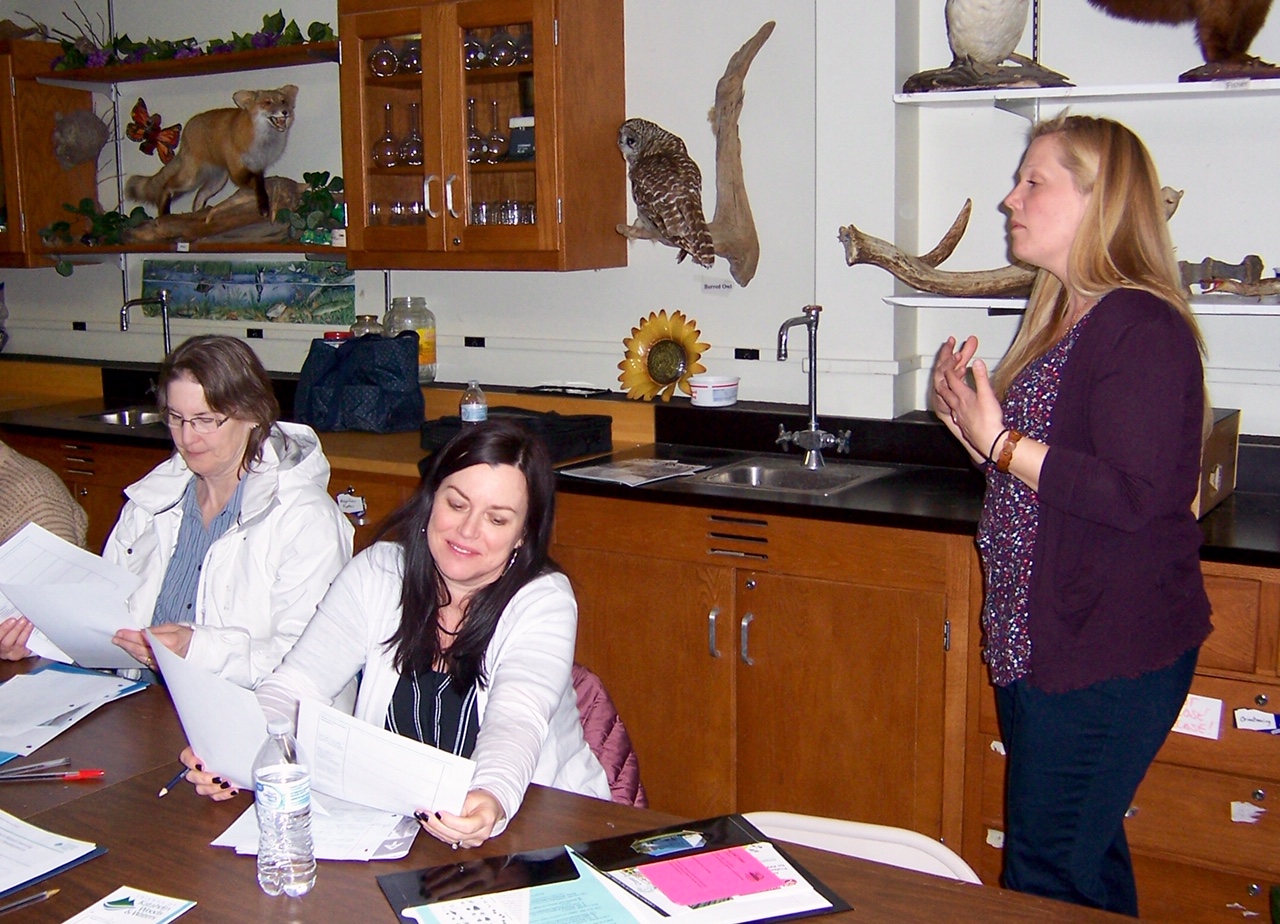
EASTON, Maine — A group of northern Maine teachers gathered recently at the Francis Malcolm Science Center in Easton to learn and share ideas about teaching STEAM: science, technology, engineering, arts and math.
More than 30 teachers met Monday, March 25, for the STEAM into Spring conference organized by the Francis Malcolm Center and the Delta chapter of DKG, a national professional society for women educators. The conference featured presentations on topics ranging from how to raise interest in Mars and the night sky to place-based learning with community service projects.
Retired Presque Isle Middle School teacher Elaine Hendrickson has been organizing STEAM events in Aroostook County for three years with DKG and sees the conferences as a way to help teachers expand their toolkit for engaging youth in the range of topics and activities of STEAM.

Richard Rand, wearing glasses on left, watches Presque Isle Middle School eighth grader Caleb Cray, right, trying out circa 1950s potato harvesting equipment at the Vera Estey House during a local history bike tour in May 2018. Looking on, from left, are students Matt Hedrich, Jonah Roy, Logan Akeley and Ethan Shaw. The Estey House will be among more than 20 destinations that BikeMaine riders will explore in Presque Isle in September.
(Staff Photo/Anthony Brino)
“It gives teachers new ideas to take back to their classrooms,” Hendrickson said. “Anything you can do as a teacher to have more background, you have more tools for different kids. Kids are all different and all learn differently.”
Francis Malcolm planetarium director Larry Berz gave a presentation on the significance of Mars, outlining opportunities for viewing the red planet and teaching about it. He also hosted a Google hangout with a NASA astrobiologist, highlighting a way that local teachers can use the internet to bring experts in from afar.
Greg Hamlin, a computer science and robotics instructor at the Maine School of Science and Mathematics, introduced teachers to Arduino, a low-cost microcontroller, or simple computer, that offers an affordable, entry-point into interactive electronics and robotics.
Kala Rush, education coordinator for Friends of the Katahdin Woods and Waters National Monument, talked about place-based learning and the Katahdin Learning Project, where students in the Katahdin region have been working on community-based initiatives such as working with the BikeMaine Aroostook County tour and the Stars Over Katahdin night-sky viewing event.
Ali Stone, a math teacher at Greater Houlton Christian Academy, offered ideas on free and user-friendly options for teaching computer science. Stone talked about Code.org, a free resource that lets teachers who aren’t familiar with computer science bring their students lessons on coding and computer science.
Another workshop was given by retired literacy teacher Cindy Edgecomb on incorporating science and literacy into the performing arts.
Kristen Lagasse, who teaches fifth and sixth grade science and social studies in Mars Hill, said she’s uses hands-on STEAM activities and lessons in her classes with good results.
She’s held STEAM nights with students and parents, where they do activities like building marshmallow and toothpick structures and testing them with earthquakes or making roller coasters for marbles. She’s also offered students coding lessons, and had students go home and teach family members basic coding concepts.
This year, Lagasse is planning some science activities involving microscope observations and GPS mapping with Google Maps. She’s also planning future trips to the Katahdin Woods and Waters National Monument.
“I think it is so important to have students make positive connections with the area in which they live,” Lagasse said. “Getting them outside and interacting with our natural resources really bring to life what I teach in the classroom. It’s all about helping kids find their passions and for me to share one of my passions for learning how to enjoy the outdoors.”







